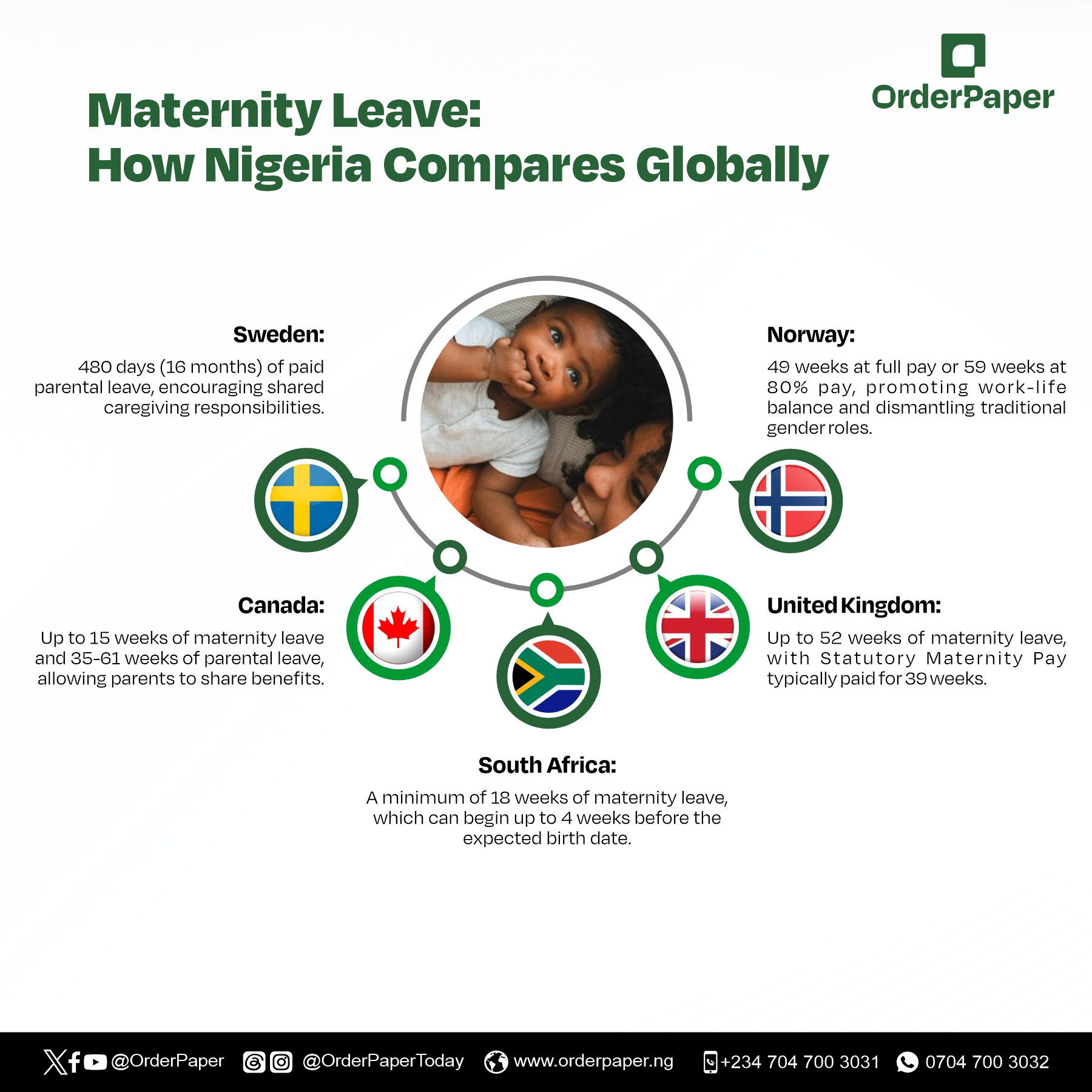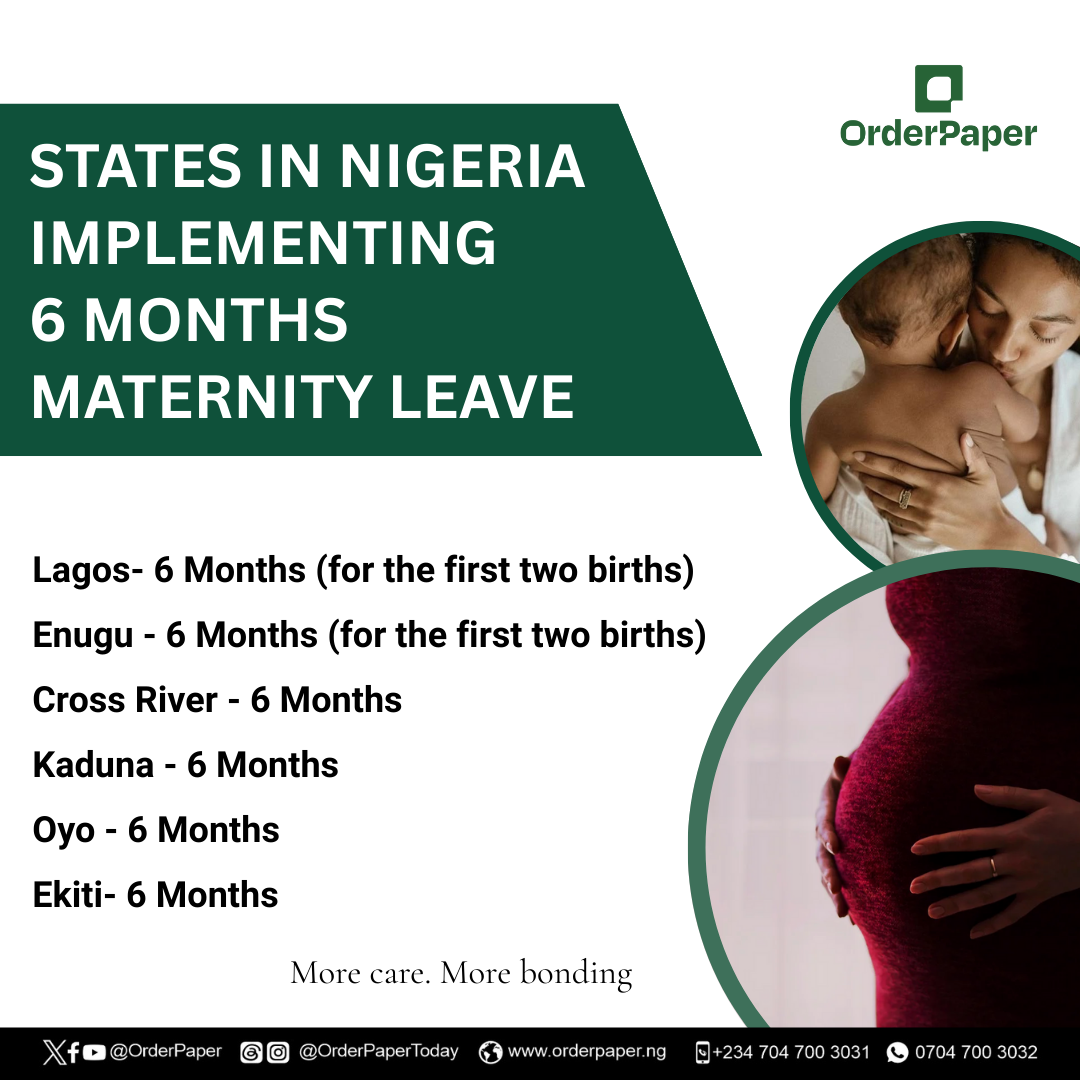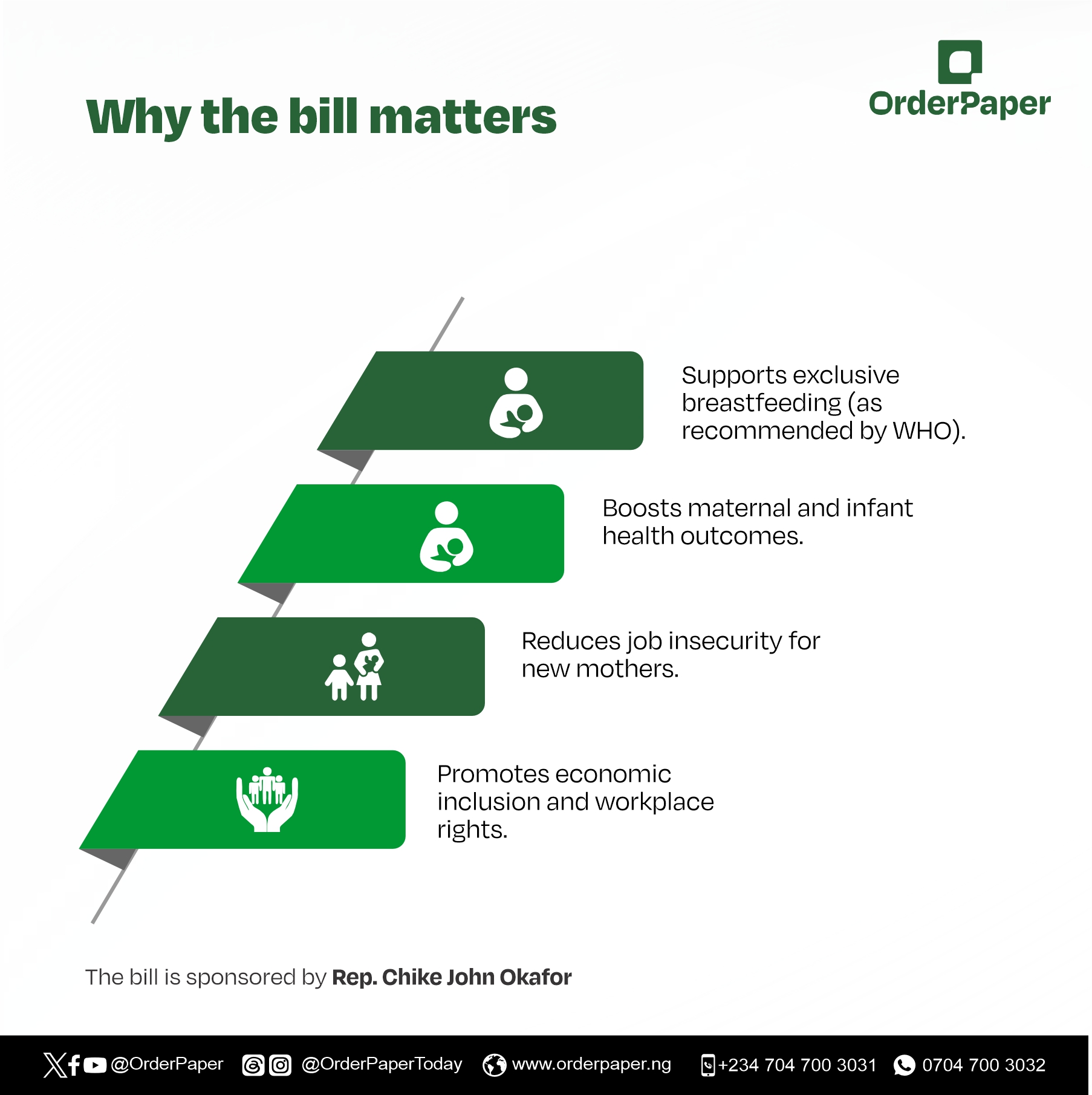A transformative shift is in the horizon for mothers in Nigeria as House of Representatives push for six months maternity leave
![]()
A bill for an Act to amend the Labour Act, Cap. L1 Laws of the Federation of Nigeria, 2004 to increase the maternity leave period of working women to six months and for related matters has passed the second reading in the House of Representatives.
This is a significant step to increase maternity leave from 12 weeks to 24 weeks (or six months), and if passed, it would mark a bold step forward for Gender and Social Inclusion (GESI) and reinforce Nigeria’s commitment to protecting and empowering working women.
But how does this bill, sponsored by Rep Chike Okafor (APC, Imo), stack up against global best practices? And why does it matter so much for Nigeria’s development agenda?
Benchmarks: Maternity Leave in other Countries
Sweden
With one of the most progressive leave policies in the world, Sweden grants 480 days (approximately 16 months) of paid parental leave—designed to be shared between both parents. This model does not just support women; it reshapes societal norms by encouraging shared caregiving and balancing work-life responsibilities.
Norway
Mothers in Norway receive 49 weeks at full pay or 59 weeks at 80 percent pay. Importantly, fathers are also encouraged to take time off, breaking stereotypes around parenting roles and promoting a culture of equity in the home and workplace.
Canada
In Canada, women can access 15 weeks of maternity leave, with an additional 35 to 61 weeks of shared parental leave. This helps new families bond while also offering job protection, promoting flexibility, and reducing the career penalties often associated with motherhood.

United Kingdom
Eligible UK workers can take up to 52 weeks of maternity leave, with 39 weeks typically paid. The structure allows for extended time with newborns and incentivizes employers to create child-friendly workplace policies.
South Africa
Closer to home, in South Africa, pregnant employees are entitled to a minimum of four consecutive months (18 weeks) of maternity leave, which can begin at any time from four weeks before the expected birth date. However, employees are free to start their maternity leave earlier if they choose to do so. This acknowledges the physical and emotional needs of new mothers.
ALSO READ: Advancing Women’s Rights through Constitutional Reforms | GESI Tracker
Nigeria’s Leap Toward Global Best Practice
At present, Nigeria’s labour law states that upon presentation of a medical document, women are entitled to 12 weeks’ maternity leave, 6 of which should be taken before the delivery, and the remaining 6 of which must be taken after.
Female employees are entitled to receive at least 50 percent of their salary during the maternity leave period. These provisions represent the minimum standard that all employers are required to uphold.
However, employers are encouraged to go beyond these minimums—by offering extended leave or providing full salary payments during the maternity period, as part of fostering a supportive and inclusive workplace.
However, Lagos, Enugu, Cross River, Oyo, Kaduna and Ekiti states have six months maternity leave with full payment for female public servants in the state. In Lagos and Enugu states, it is for the first two babies delivered by any female civil servant while the maternity leave would be cut short to three months for giving birth to the third baby. Also, some progressive organisations have taken the lead by offering up to 6 months.

However, without national legislation, these efforts will remain fragmented and discretionary. The proposed amendment of the national labour law would achieve the following:
- Align with WHO’s global recommendation of six months of exclusive breastfeeding.
- Boost maternal and infant health outcomes.
- Reduces job insecurity for new mothers.
- Promote economic inclusion and workplace rights
- Position Nigeria among countries that take family welfare seriously.
ALSO READ: Analysing Bills on Inclusivity in Politics and Governance | GESI Tracker

GESI Gains: Why This Bill Deserves Support
If passed, this amendment could redefine the landscape for women in Nigeria’s workforce. Here’s what’s at stake:
Economic Security
Guaranteeing six months of paid leave provides critical protection for women against job loss or discrimination, supporting their economic participation and career continuity.
Health & Well-being
Longer leave promotes maternal recovery, reduces postpartum stress, and enables exclusive breastfeeding, which benefits both mother and child.
Challenging Social Norms
By recognizing the dual roles of women in the home and the workplace, the bill challenges the outdated idea that caregiving is a private matter rather than a shared societal responsibility.
Legal Accountability
Formalizing maternity leave in law ensures that protection is not left to the goodwill of employers. It establishes a universal standard across the public and private sectors.
What Needs to Happen Next?
The bill’s passage hinges on political will, support from civil society organizations, and employer buy-in. It also requires robust public engagement to highlight its importance not just for women but for families, businesses, and the nation at large.
Nigeria must recognize that protecting mothers is not a privilege but a right.

